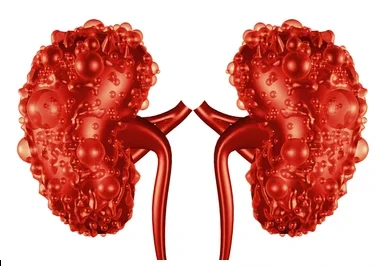According to Ayurveda, the kidney is an essential organ that remove toxins from the body and keep the fluid equilibrium in the body. They are an important part of the Mutravahasrotas (urinary system). Taking care of our kidneys becomes essential in an environment where stress, poor eating habits and environmental pollutants are becoming more and more common. Ayurvedic principles can help us build the lifespan, health and resilience in our daily lives. The ageless knowledge of Ayurveda provides direction for cultivating ideal well-being from within, whether your goal is to support renal health difficulties already present or prevent kidney-related problems in the first place. This article examines practical advice and Ayurvedic ideas for maintaining kidney health and avoiding kidney problems. Root Causes of Kidney Weakness in Ayurveda In Ayurveda, kidney weakness is frequently linked to a Vata, Pitta and Kapha imbalance in the body and other lifestyle variables. The following factors can affect the health of your kidney, as per Ayurveda: Imbalanced Doshas The kidneys can become abnormal due to excess Vata, Pitta or Kapha Doshas. An imbalance of Vata may induce dryness and exhaustion, an imbalance of Pitta can produce inflammation and excessive heat and an imbalance of Kapha can cause kidney congestion and slowdown. Poor Digestion Toxins (Ama) can build up in the body because of poor digestion, which can be brought on by excessive consumption, irregular eating patterns, or eating foods incompatible with one’s constitution (Prakriti). Over time, kidney function may be impacted by these pollutants. Dehydration When there is insufficient intake of fluids, particularly water, the kidneys struggle to filter waste materials from the blood, which can contribute to dehydration. Dehydration for an extended period may lead to renal problems, including kidney stones. Poor Diet An excessive intake of processed meals, refined sugars, fatty foods and salt can strain the kidneys and cause them to deteriorate. A diet low in whole grains, fresh produce and other nutrients deprives the body of vital elements required for healthy kidney function. Inactive Lifestyle Not moving around much can hinder metabolism and circulation, which can cause Ama build up in the body. Regular exercise supports kidney health by assisting in appropriate circulation and cleansing. Stress Emotional tension and mental strain might weaken the kidneys and upset the Dosha balance, according to Ayurveda. Over time, renal function may be compromised by adrenal exhaustion brought on by ongoing stress. It is possible to naturally restore balance and increase kidney function by addressing these underlying reasons using Ayurvedic concepts including food change, stress management, herbal therapies and lifestyle adjustments. Consult with a skilled Ayurvedic practitioner for tailored advice and assistance in treating kidney weakness naturally. Improving the health of the kidney through Ayurveda Ayurveda offers complete methods to support overall health as well as the health of the kidneys. The idea of balance—achieving a state of equilibrium among the body, mind and spirit to preserve maximum health—is fundamental to Ayurvedic philosophy. Here are some Ayurvedic ways to protect your kidneys. Diet Ayurvedic kidney treatment is primarily based on dietary corrections, ensuring that your diet is balanced. The kidneys receive vital nutrients when entire, unprocessed diets like fresh produce, whole grains, beans, and lean meats are prioritized. It can promote the kidneys’ optimal function to avoid items that load them, such as processed foods, refined carbohydrates, and excessive salt. Ayurvedic herbs Herbs from Ayurveda are essential for supporting kidney function and cleansing. Among the herbs frequently used to support the kidneys are Punarnava, Gokshura, Varuna, Chandraprabha and Shilajit. These herbs support general renal function, help cleanse the kidneys and eliminate toxins. However, do not take any of these herbs without the prescription from a qualified Ayurvedic doctor. Hydration In Ayurveda, kidney health is largely dependent on hydration. Throughout the day, sipping warm or room-temperature water promotes healthy kidney function, helps eliminate toxins and keeps kidney stones from forming. Stress Management An essential component of Ayurveda’s kidney health strategy, moreover, is stress management. Stress-relieving techniques like yoga, meditation and deep breathing exercises support the body’s balance and vitality by easing mental and emotional tension. Lifestyle changes The emphasis is on lifestyle changes to maintain kidney health. Overall kidney strength is influenced by keeping a healthy weight, exercising often, obtaining enough rest and sleep, and abstaining from practices that harm the kidneys, such as smoking and excessive drinking. Detoxification Ayurveda suggests using gentle detoxification techniques to help the kidneys and remove toxins from the body. Seasonal detoxification treatments, dietary modifications and techniques like self-massage (Abhyanga) encourage detoxification and circulation. Dinacharya Creating a daily routine (Dinacharya) that aligns with the body’s natural cycles aids in keeping the kidneys and other organs in harmony and balance. Daily Ayurvedic practices including oil pulling, tongue scraping, and nose cleaning promote general health and vigor. Through everyday use of these Ayurvedic practices, people can strengthen their kidneys, encourage good renal function, and avert kidney-related problems. Speaking with a trained Ayurvedic practitioner may promote a comprehensive approach to kidney health and well-being by offering individualized advice and suggestions based on each person’s requirements and imbalances. Additional Tips Here are some additional tips to promote kidney health: Avoid overeating Avoid overeating, as this can strain the kidneys and overburden the digestive system. Eat slowly, give your food a good chewing motion, and stop once full. Steer clear of large, oily, and spicy meals – especially after dark – as these can cause problems with renal function and upset stomachs. Keep a Healthy Weight Kidney disease is more likely in those who are obese. Eat a balanced diet and engage in regular exercise to stay at a healthy weight. Engage in enjoyable physical activities, such as yoga, swimming, or walking, to not only assist your metabolism but also enhance your general health. Limit Intake… Continue reading Maintaining Kidney Health With Ayurveda
Maintaining Kidney Health With Ayurveda
